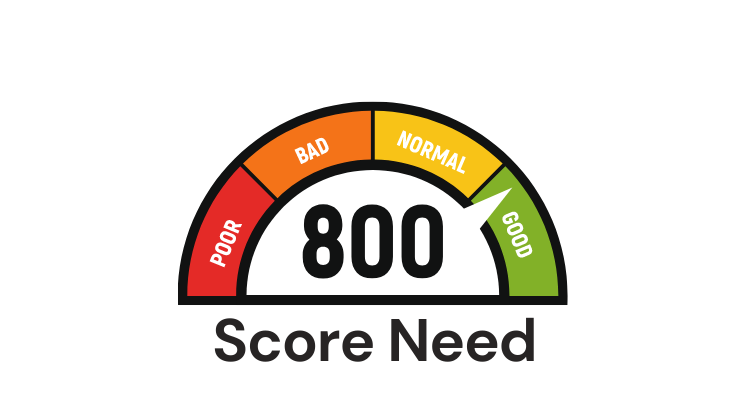Figuring out the perfect amount of credit for you depends on how responsibly you manage it. Since your credit score is influenced by your available credit and what’s currently utilized, it’s good to accept the maximum credit limit offered by lenders—as long as you regularly pay off your balances and maintain your credit utilization below 30 percent.
However, suppose you struggle with paying off balances. Maybe you consistently reach your credit limit. In that case, it may be wise to open additional lines of credit to minimize the risk of accumulating excessive debt. However, if you handle your credit commitments responsibly, asking for a higher credit limit or opening a new credit card can be a strategic decision. In fact, boosting your available credit can positively impact your credit score.
What is a credit limit?
Think of a credit limit as your financial superpower cap. It’s the maximum amount of money you’re allowed to borrow from your line of credit. So, if your credit card struts a $5,000 credit limit, you have the power to wield a balance of up to $5,000 on that card.
If you spend more than your credit card limit, what happens depends on whether you chose to have something called “over-limit protection.” If you didn’t choose it, your credit card will be declined and the charge won’t go through. But if you signed up for over-limit protection, the charge might still go through, but you might have to pay an extra fee.
Some people don’t know that the interest on the money they haven’t paid back yet adds up. This also includes fees and charges for breaking the rules. For example, if you’ve only spent $4,000 on a credit card with a limit of $5,000, you might think you still have $1,000 left. But if you’ve only been paying the smallest amount required each month, the interest on your credit card could slowly bring you closer to your limit.
How much credit should someone have?
Credit card issuers determine your credit limit in one of two ways. They either provide cards with set credit limits for everyone, or they calculate a personalized limit based on your credit history and score. Your credit limit reflects your credit health, meaning if you have poor credit, you’ll likely have a low credit limit.
On the other hand, if you have good or excellent credit, you’ll likely be offered higher credit limits. That means that you can also ask for increases if they’re not regularly offered.
There’s no definite answer to how much credit you should have. It’s generally a good idea to accept the credit that lenders are willing to give you, as long as you can responsibly manage and use that credit.
What is the right amount of credit for you to use?
It’s important to be mindful of how much credit you use. While it’s beneficial to have access to as much credit as lenders are willing to give you, it doesn’t mean you should use it all. Using too much credit can actually harm your credit score.
Why? A chunk of your credit score, about 30 percent, is determined by your credit utilization ratio. This ratio compares the amount of credit you have available to the amount you’re currently using. For example, if you have $10,000 in available credit and a balance of $5,000, your credit utilization ratio is 50 percent.
To improve your credit score, it’s a good idea to keep your credit utilization ratio below 30 percent. A simple rule to follow is to never let your balances exceed 30 percent of your available credit. If your balance exceeds this ratio, try to pay it off as soon as possible to avoid negative impacts on your credit score.
If you use a credit monitoring service to keep track of your credit score, you may notice slight changes in your score whenever you use or pay off your available credit.
A final word on credit limits
There isn’t a specific amount of credit that you must have. Accept the credit offered to you, but make sure you don’t use more than 30 percent of the available credit. It’s important to pay off your balances on time and consistently. By using credit responsibly and developing good habits with your credit card, you can keep a good credit score.
